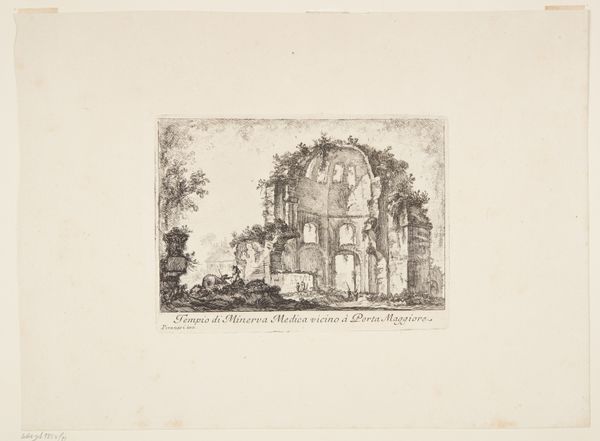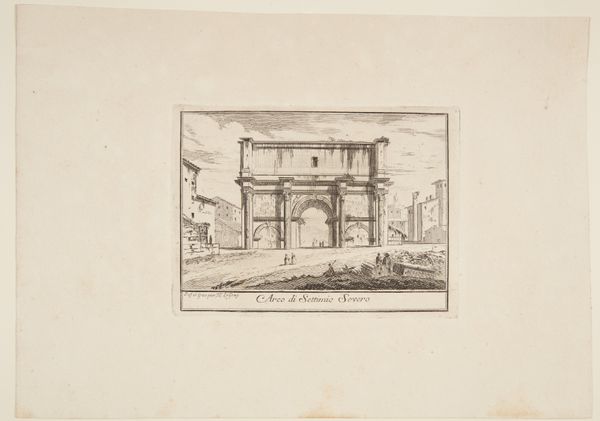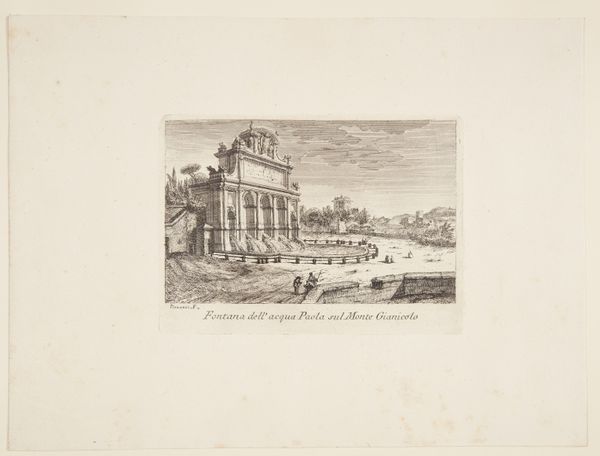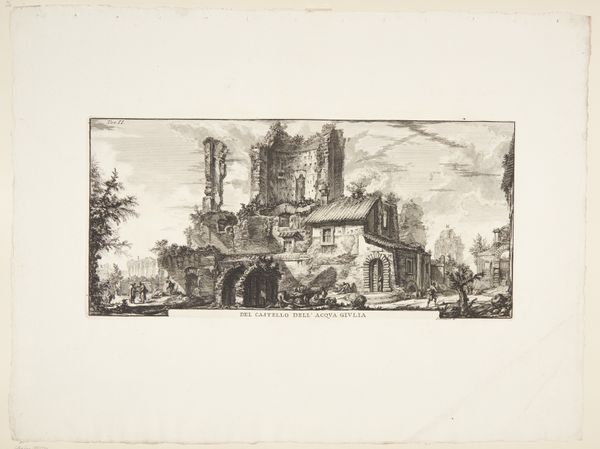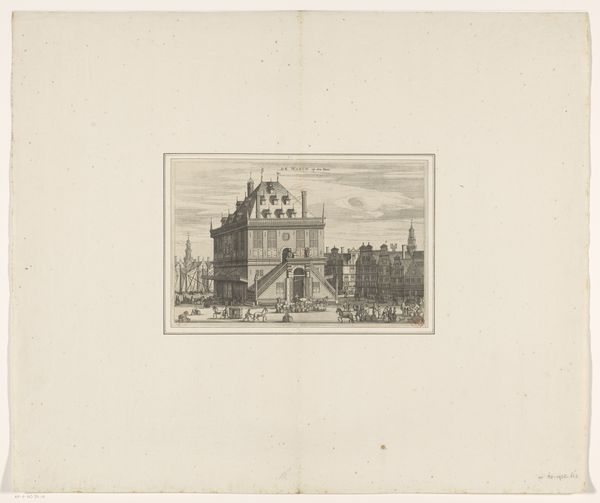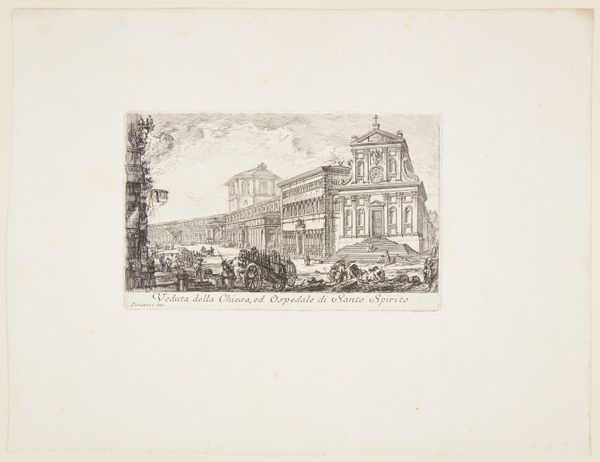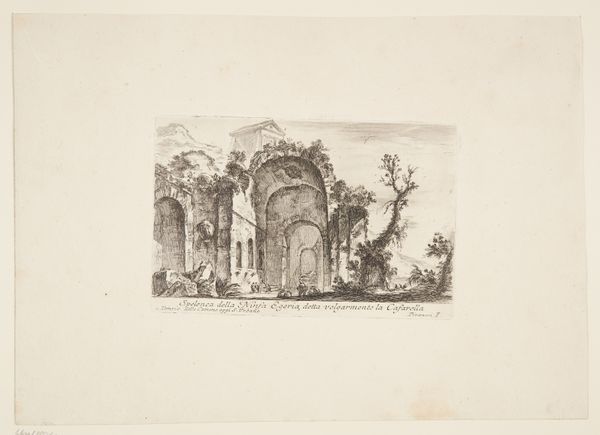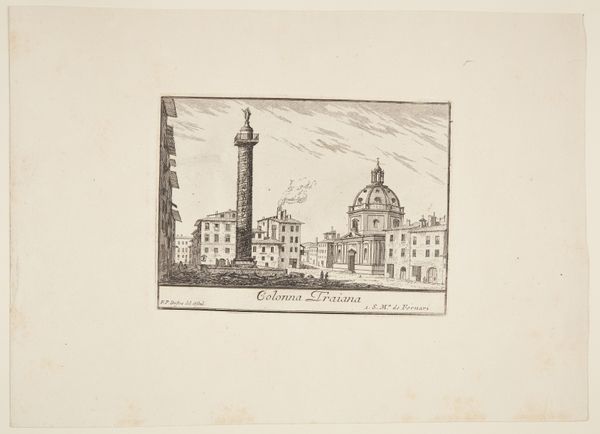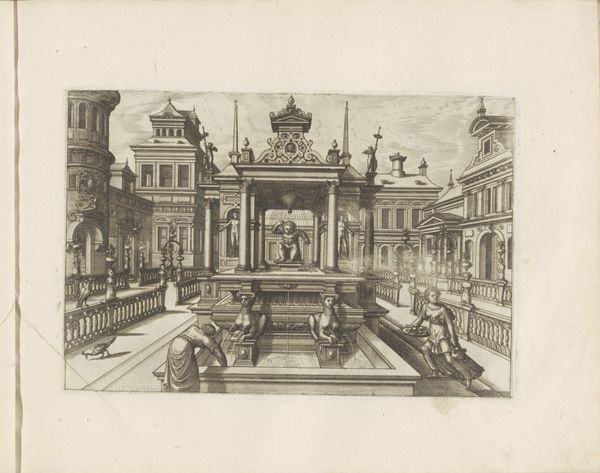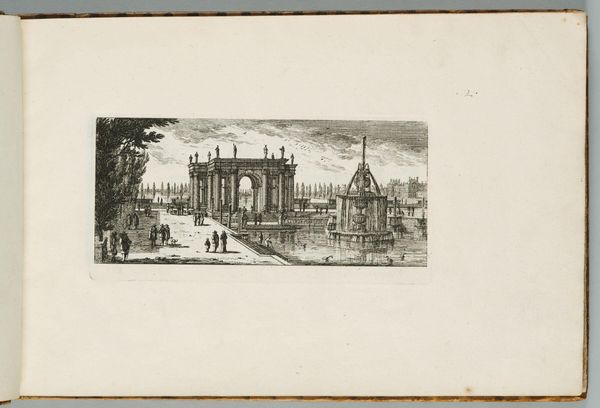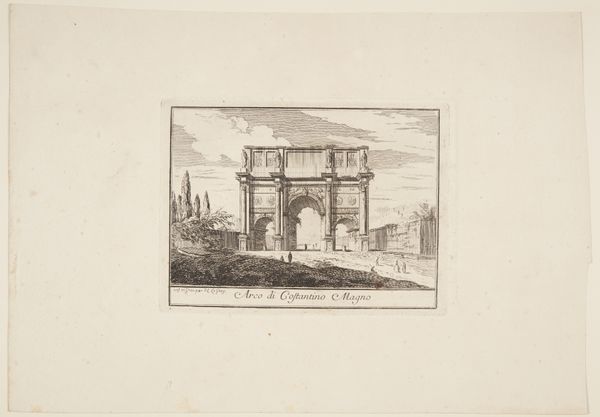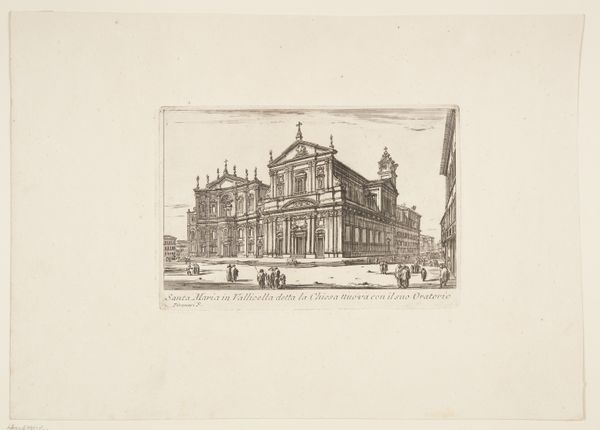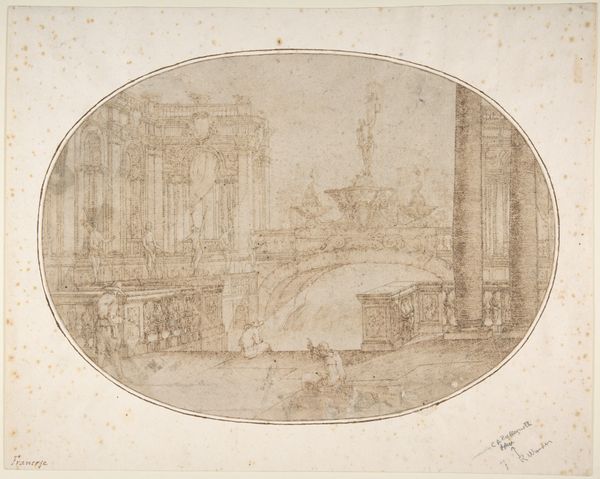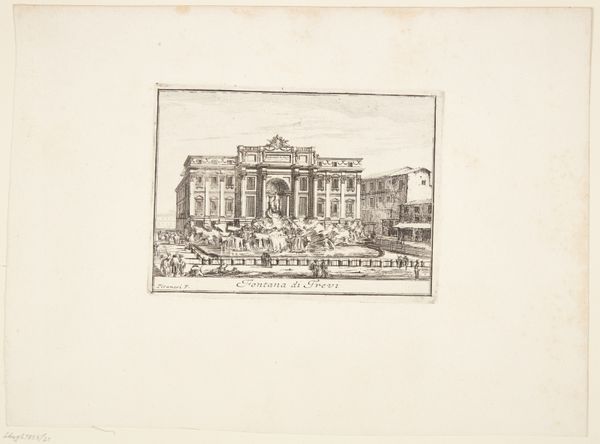
View of the Fountain of the Acqua Felice in the Termini area 1741 - 1748
0:00
0:00
drawing, print, ink, engraving
#
drawing
#
baroque
# print
#
ink
#
cityscape
#
engraving
Dimensions: 118 mm (height) x 191 mm (width) (plademaal)
Giovanni Battista Piranesi made this print of the Fountain of the Acqua Felice in Rome, likely in the 1740s or 50s. It shows the fountain as a modern marvel, an urban improvement brought about by papal authority. But how might it have been understood at the time? Piranesi presents the fountain not just as a source of water, but as a spectacle, a stage for social life. Look at the figures populating the scene: they're not just collecting water, they're gathering, gossiping, and showing off. Piranesi was fascinated by the layers of Roman history, and the institutions of his time. His images reflect the city’s relationship with its own past. Historians can turn to guidebooks, diaries, and administrative records, to understand how the city invested in projects like this fountain, and how it affected the daily lives of ordinary Romans. By looking into these questions, we can understand how the cultural meanings of the city are created.
Comments
No comments
Be the first to comment and join the conversation on the ultimate creative platform.
